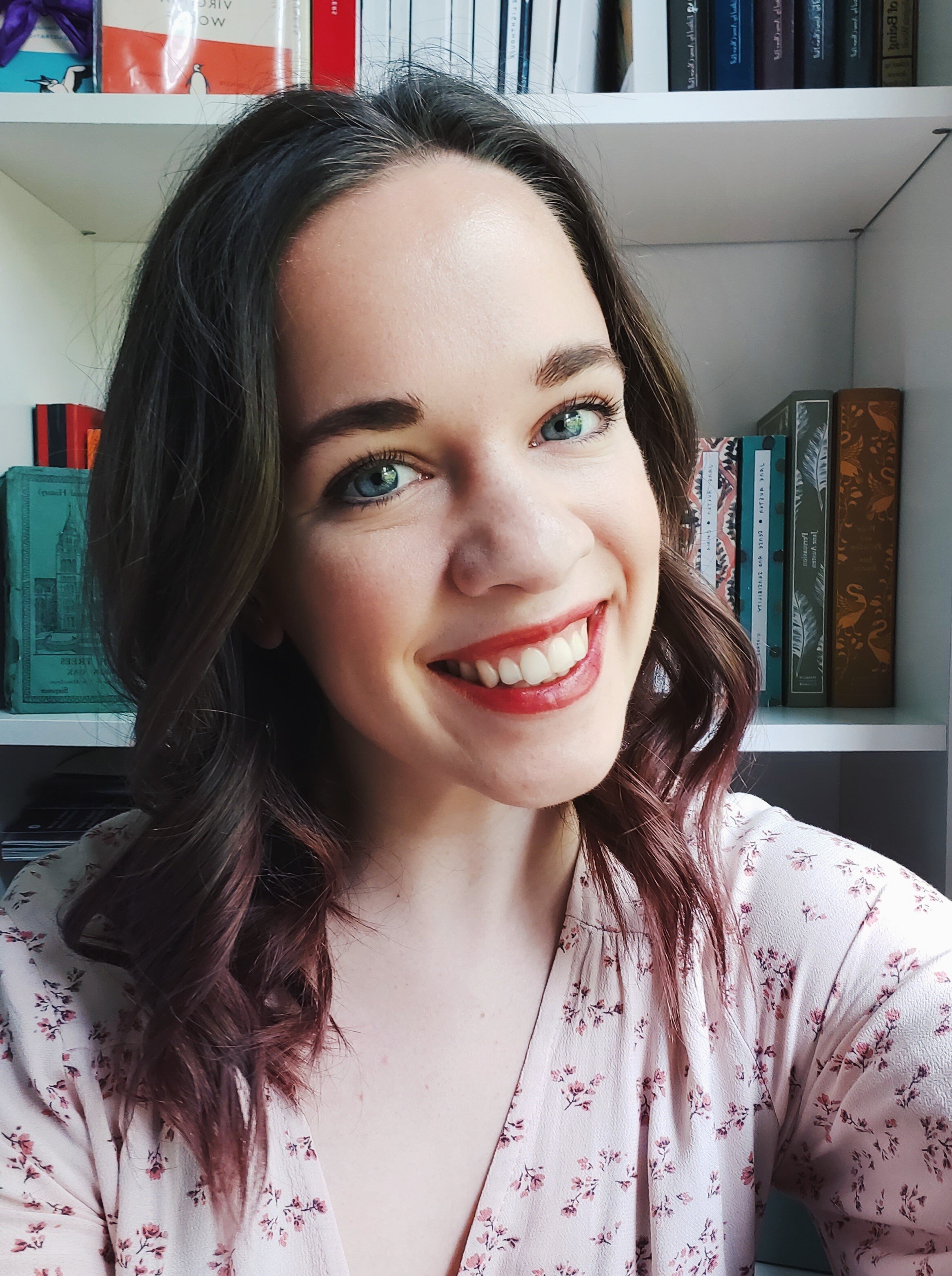Night and Day: Tea and Tradition
Night and Day lecture by Ellie Mitchell, 21 November 2020
Guest Blog: Lisa Hutchins
At exactly what time should one sit down to afternoon tea? This became a surprise discussion topic during Ellie Mitchell’s contribution to the Literature Cambridge Virginia Woolf season on Saturday as she delivered another excellent lecture on the author’s second novel, Night and Day. Her theme was the role of tea – the ritualised, formal meal – in the story and how its protagonists are bound by it, interrupt it, subvert it and eventually find themselves on the threshold of a world where tea is perhaps no longer taken in this formal way (and yet might still be enjoyed on terms they have themselves defined). And we were reminded that tea, the beverage, has a complex history as a product of empire and a signifier of Britishness as well as forging a nineteenth-century reputation as a comforting and fortifying brew that is still going strong in our culture today.
Ellie Mitchell
Ellie, equipped with a steaming mug of her own, acknowledged that Night and Day is perhaps not one of Woolf’s most well-regarded novels, but encouraged us to continue to read and enjoy it with the promise of a rewarding experience. We heard how it is still to some extent an apprentice piece, overwritten in places, and with some pacing issues. Woolf’s friend and rival Katherine Mansfield, maybe hoping for something more experimental, wrote a review comparing it to, of all people, Jane Austen. This is not a comparison that will come up too often, however it captures perfectly the sometimes-satirical tone, the focus on a series of domestic interiors and the concern with the marriage prospects of young people who may not perfectly embody the kind of match hoped for by their elders.
Night and Day was contextualised by Ellie in light of Alison Hennegan’s lecture the week before on Woolf’s first published full-length fictional work, The Voyage Out. Alison characterised this as Woolf metaphorically packing for the writing life before her, deciding what aspects of her upbringing, outlook and education would serve her well. Ellie suggested we consider Night and Day as Woolf unpacking – deciding what to discard in future work, a satisfying explanation of the differences between this novel and what we might regard as Woolf’s mature modernist style. Ellie highlighted the importance of the tea table in the late-Victorian Stephen household at 22 Hyde Park Gate through references Woolf made to a folding table, literally part of the furniture used for tea there, that followed her all the way to Monk’s House where she lived until the end of her life in 1941. Ellie discussed how the novel’s protagonists try to break with the conventions that bind them, succeeding rather in redefining these conventions on their own terms, with the door left ajar for them to travel in whatever future direction they wish.
The discussion of when exactly one takes tea, and for whom this ritual still has meaning, revealed a heartening aspect of the transformation that Literature Cambridge’s offering has undergone as a result of COVID-19 and the fact it is now near-impossible to meet in person for the kind of traditional study day that was once its staple fare. I was lucky enough to attend one of these events before our entire lives, as it sometimes seems, moved online and on to videocall software. Yes, it was a real treat to be able to take the best part of a day out of everyday life, to enjoy lunch, to chat to other participants in the charming surroundings of Stapleford Granary and to enjoy something of a respite from busyness and hurry. But it was a luxury one could not always enjoy for one reason or another, plus the events were limited to those who could physically be present in Cambridge at a given time and date. Now the two-hour online sessions attract people from around the world who may have actually got up in the middle of the night, such is their commitment to attending. This brings a proper international flavour, even more so than is usually the case in Cambridge, with participants joining this time from Germany, Spain, Sweden, Japan, Saudi Arabia, Canada and the US in addition to the UK.
The Woolf season continues in early December with a look at Leonard Woolf’s political causes including anti-imperialism, the co-operative movement and women’s suffrage, and at the role Virginia played in this work. Then Alison Hennegan tackles Jacob’s Room before Kabe Wilson presents his work in response to lockdown, On Being Still. The Cambridge-based artist and writer has produced a series of paintings inspired by Vanessa Bell and Duncan Grant, and a diaristic account of the summer that channels the personal writings of Woolf, seeking to address the challenges of engaging with Bloomsbury modernism against the backdrop of the global Black Lives Matter protests. Going into the new year there are riches aplenty for those who want a deeper insight into Woolf’s major works, but also sessions on her non-fiction writing and later novels such as The Years and Between The Acts. And, of course, a chance to deepen acquaintance with that delightful spaniel Flush and his adventures in London and Florence.


